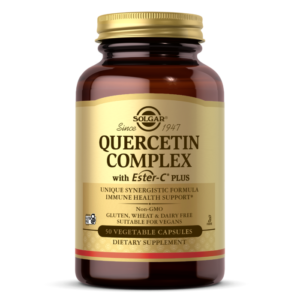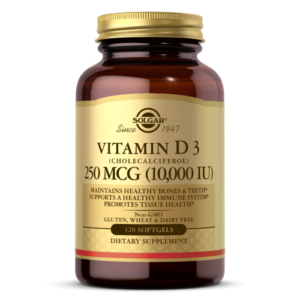Key Takeaways:
- Americans spend an enormous amount of time indoors, but a wide range of studies have shown that getting out into nature, moving your body, and exposing your skin to sunlight can have a wide range of positive health benefits.1,2
- Even without sunlight or exercise, being around green spaces can affect mood and stress levels.3
- Reaping the rewards of time spent outdoors isn’t hard: a brisk 15-minute walk in the midday sun could improve your Vitamin D levels, immune health, and mental wellbeing.
It’s easier than ever before to stay in, but going outside remains essential for making the most of life — not least for the stunning array of mental and physical health benefits that going outside might provide.
Sure, we’ve got exercise bikes for our cardio kicks, food delivery options aplenty, and all the entertainment ever on our phones, but the balance between the time we spend inside and the time we spend outside has tilted: the US Environmental Protection Agency claims that Americans spend 90% of their time indoors.
The good news is that you can reap the benefits of the great outdoors with just a small amount of time and effort. Let’s rebalance the scales and see if nature can help us to feel better, look better, and shine brighter.
Sunlight is crucial for Vitamin D production
There are few pleasures more simple than being outside and feeling the warmth of the sun on your skin. There’s a good reason our bodies reward us for getting some exposure to sunlight.
You probably already know about Vitamin D. It’s known as the ‘sunshine vitamin’ as, while it is found in some dietary sources, it’s primarily made in our bodies when our skin is exposed to sunlight.4
Vitamin D is linked to a range of aspects of human health, ranging from bone and heart health to immune health and endorphin production.5

Sunlight and Sleep
If you’re struggling to sleep, the amount of sunlight exposure you get might have something to do with it.
Getting enough sleep has been extensively linked to positive effects on several aspects of our health, from cardiovascular and cognitive health to mood and metabolic health.6
Our circadian rhythm is a part of our biology. It uses light to determine what time of day it is and how to regulate the body based on what it should be doing at that time, and of course, determining when and for how long to sleep.
Exposure to bright enough light, like sunlight (magnitudes brighter than anything you might find indoors) in the morning causes us to produce melatonin earlier in the day, helping us sleep more easily at night.7
In fact, natural daylight can affect sleep in three different ways: it advances the timing of sleep to earlier hours; it affects the duration of sleep; and it improves sleep quality.8
The many health benefits of exercise
Exercise plays a role in your immune, mental and general physical wellbeing. And it’s hard to go outside without getting at least a little bit of exercise!
The CDC outlines how even moderate exercise can benefit your cardiovascular health, strengthen your bones and muscles, and increase your likelihood of living a longer life.9
As an added bonus to getting your blood pumping when you exercise, you’re also increasing the movement of white blood cells in your body, which helps them to do their job effectively.10
What you might not have been aware of, however, are the litany of positive impacts that physical exercise can have on mental health, ranging from improved mental performance11 to reduced rates of occasional anxiety and depression.12
Even without exercise and sunlight, being around nature has measurable benefits
If the thought of exercise immediately makes you want to lie down, don’t worry. You don’t need to go jogging to experience the health benefits that nature can provide.
In fact, simply spending time around natural spaces has been recorded to have a surprising impact on your mood and stress levels.
A 2014 study found that when participants moved from urban areas to greener ones, they saw “sustained mental health benefits” in the years following that move.13
Another study found higher levels of salivary cortisol—the stress hormone—in people living around areas with greater levels of green space.14 The more green space you live around, the less stressed you’re likely to be.
What’s not clear from these studies is exactly what part of being near green spaces is the root driver of these benefits. Whether it’s cleaner air, the sound of birdsong, or just the color green, the benefits speak for themselves.
How to get the health benefits of being outside
There’s even more good news. You don’t need to spend hours and hours outside every day to have it make an impact on your health: you can reap the benefits of the great outdoors with very little time and effort.
The CDC recommends 150 minutes of ‘moderate’ exercise per week. That’s 30 minutes a day for 5 days per week. Moderate exercise is anything that increases your rate of breathing but doesn’t put you out of breath, where you start to sweat lightly after 10 minutes.15 A brisk walk around the great outdoors is one of the easiest ways to hit that threshold.
The positive effects of simply sitting in nature are just as easy to access. Studies have found positive mental health benefits from spending just 30 minutes in an outdoors space per week,16 and getting enough sunlight to make a difference can be done in just 12 to 15 minutes of midday sun during the warmer months, according to studies.17
To put it simply, get out there, breathe the fresh air, and move your body in whatever way feels good and comfortable to you. Grab your smartphone and a pair of headphones and get your daily sunshine over three or four of your favorite songs. You might just feel better.
Supplements to support your time in the great outdoors
There truly is no replacement for quality time spent in nature. Still, at Solgar, we’ve been leveraging the science of nature since 1947 to create the world’s first and finest nutritional supplements.
You can get Vitamin D from supplements as well as sunlight. Vitamin D is one of four fat-soluble vitamins, which is why this formula delivers vitamin D3 in oil-based softgels to promote optimal absorption.* In the winter, or in climates that don’t see as much sunlight, a Vitamin D supplement can help to make up the difference.

This unique formulation contains TamaFlex®, a clinically-studied, patented combination of Tamarind Seed & Curcumin extract, and supports the reduction in joint pain from exercise or physical activity.*

Solgar® Quercetin Complex With Ester-C® Plus Vegetable Capsules
This supplement includes the important bioflavonoid Quercetin in a synergistic formula with Ester-C® Plus to provide unique antioxidants as well as immune health support.*
GET THE LATEST UPDATES AND EXCLUSIVE DEALS WHEN YOU SIGN UP FOR OUR NEWSLETTER!
Summing it up
Living your best life doesn’t have to mean hitting the gym four times a week. But the great outdoors is beautiful, and the ability to walk through it is a privilege that’s too easy to take for granted. Nature has a major role to play in any life well-lived, and the bundle of health benefits available by enjoying more of it shouldn’t be ignored.
Feeling inspired? How are you going to incorporate this information into your life?
We’d love to hear if getting outside helps you to glimmer that little bit brighter, so why not connect with us on Instagram and let us know?
*These statements have not been evaluated by the Food and Drug Administration. These products are not intended to diagnose, treat, cure or prevent any disease.
The information provided on this site is intended for your general knowledge only and is not a substitute for professional medical advice or treatment for specific medical conditions. Always seek the advice of your physician or other qualified healthcare provider with any questions you may have regarding a medical condition. The information on this website is not intended to diagnose, treat, cure or prevent any disease. Never disregard medical advice or delay in seeking it because of something you have read on the Solgar® site.




